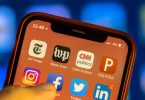When you become a PRSA member, you pledge to follow the core values, principles and pract ice
ice
guidelines of the PRSA Code of Ethics. Even beyond our members, the Code is an industry standard that helps define a practitioner’s professionalism and advance their success. Yet when something goes wrong companies must remember that PR cannot fix inherent organizational problems. While PR is often tasked with managing a controversy after the damage has been done, PR professionals must remind coworkers and clients that the best PR is “doing the right thing” from the start. This week we learned that New England Patriots quarterback Tom Brady and theme park giant SeaWorld may have permanently hurt their brands by failing to do the right thing.
In this week’s Friday Five – PRSA’s take on the week’s biggest news stories — we will take a look at Brady and SeaWorld, as well as a new report on PR leadership. We’ll also declare the true winner of Mayweather/Pacquiao and continue to laugh at McDonald’s resurrection of the Hamburgler.
Here’s what we learned this week:
1) PR Leaders Think They Are Awesome, But Their Employees Tell Another Story
How is your public relation team leader performing? The Plank Center for Leadership in Public Relations found out that the answer varies depending on who you ask. When the Plank Center asked leaders about their performance, on average, they gave themselves an “A-“; however, when they asked employees to grade their leaders, those leaders received an underwhelming “C+.”
According to the report, public relations leaders need help in the following areas:
- Vision
- Relationship-building skills
- Team leadership capabilities
How would you grade the leadership in your PR department?
2) Tom Brady May Have Deflated His Marketability
A simple lie may accomplish what football teams have failed to do for years: defeat Tom Brady. Last January, Brady denied allegations that he had something to do with under-inflated footballs during the AFC Championship game. However, on Wednesday the NFL concluded its investigation, finding that it was “more probably than not” that Brady knew what was going on.
AdWeek reached out to sports marketing experts to get their opinion on whether this ruling meant Brady hurt his marketability, and they found that opinions greatly varied. Lionel Knight, senior vice president at Upshot, said, “On the national and even international stage, I’m sure this will affect Tom Brady’s commercial standing. At the very least, it’s going to make any brand hesitate before tying themselves to a figure who—in some people’s minds, at least—is forever tarnished.” Yet, Ed Mitzen, founder of Fingerpaint Marketing, disagreed saying, “It will have virtually no effect on his sponsorship marketability.”
Only time will tell who is right.
3) The Hamburgler Has Grown Up
McDonald’s has been going through an identity crisis lately. Known for its high-calorie, high-fat fast food, it has even gone so far as introducing items incorporating kale to try to appeal to more health-conscious customers. In a move (possibly to combat this identity crisis) McDonald’s has brought back an old favorite character from its marketing stable: the Hamburgler.
However, the Hamburgler is no longer a cartoon character and has grown up into an attractive (and somewhat creepy) adult. TIME magazine shares their favorite tweets about the Hamburgler, but here’s one of my favorites:
McDonald’s new Hamburglar only steals artisanal locally sourced hamburgers pic.twitter.com/Hx2pqbeDER
— Desus Nice (@desusnice) May 6, 2015
What do you think about the new Hamburgler? Genius? Desperate? Sound off in the comments section below.
4) SeaWorld May Need More than PR to Stay Afloat
While SeaWorld has started a campaign to highlight its commitment to caring for killer whales, it may not be enough to save the company’s reputation. In PRWeek, Chris Daniels spoke to crisis communications experts about SeaWorld’s situation. According to Daniels, after the documentary Blackfish was released in 2013, SeaWorld’s stock price plummeted an astounding 60 percent. Daniels reached out to Russ Williams, SVP for crisis and issues management at Cohn & Wolfe regarding SeaWorld’s (and other zoos and aquariums) business plan. Williams explained, “As younger generations turn away from zoos and aquariums, they will avoid taking their own children. This will yield a snowball effect over time in which fewer people take an active interest in seeing animals in captivity. Some of these facilities simply won’t survive the decline.”
5) Periscope Was the Winner of the Mayweather / Pacquiao Fight
Twitter CEO Dick Costolo has declared a winner in the Mayweather / Pacquiao Fight:
And the winner is… @periscopeco
— dick costolo (@dickc) May 3, 2015
What did Costolo mean from his tweet? Peter Kafka translates:
“So I’m pretty sure he was suggesting that Periscope was a fun way to augment the broadcast of the fight, with commentary from friends, fighters or whomever — not as a way to replace the broadcast.”
As Kafka explains, Periscope has many legal hurdles ahead of them as users begin to stream paid content for free. How will it all work out? Your guess is as good as mine, but PR professionals should pay close attention to the fight because Periscope isn’t expected to going away any time soon.
Rosanne Mottola is public relations manager at the Public Relations Society of America. You can follow her on Twitter @RoeMoPR.






